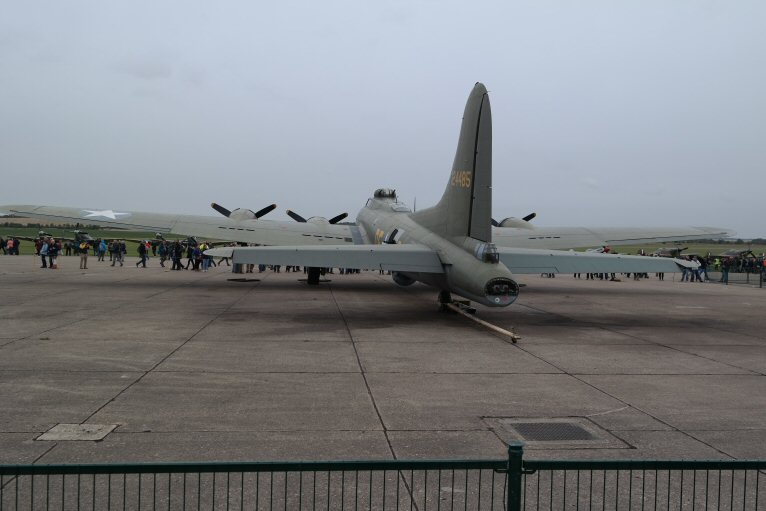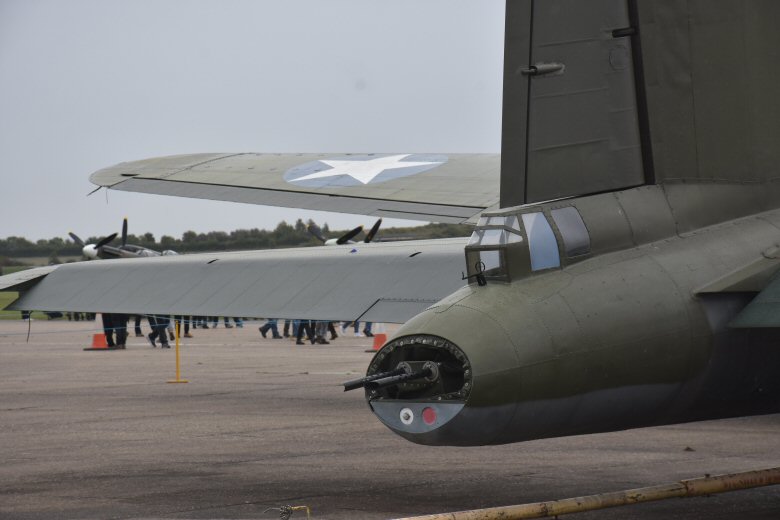![]() Pilot
Hallum Esbjerg
27 AUG 1944 *
B17 42-37841 *
Bertrand C. Hallum
Updated:
15 NOV 2019
Pilot
Hallum Esbjerg
27 AUG 1944 *
B17 42-37841 *
Bertrand C. Hallum
Updated:
15 NOV 2019
 |
 |
|
Mission Report
233 #42-37841 Banshee, 360BS, piloted by 1Lt. Bertrand
Hallum, Jr., was hit over Esbjerg and the tail was blown off, including
the rudder, parts of the elevators, and a little bit of the stabilizer.
The tail gunner, S/Sgt. Milt I. Ross, was
killed when the whole tail section was blown off in small pieces. Lt.
Hallum was able to fly the aircraft back to England. Near Middlesham, he
ordered the crew to bail out and let the B-17 crash. All bailouts were
successful. The B-17 was on its 97th mission—a record at that time for any 303rd BG(H) aircraft. The B-17 crashed at Badingham, U.K. Esbjerg - Badingham nearly 600 km! |
CITATION TO
ACCOMPANY AWARD OF THE HALLUM, BERTRAND 9NMI0, JR., 0-760833, First Lieutenant, Air Corps, United States Army. For extraordinary achievement while serving as Pilot of a B-17 airplane on a bombardment mission over enemy territory, 27 August 1944. Approximately five seconds after bombs away, an 88mm shell exploded in the tail of the aircraft which Lieutenant Hallum was piloting and blew the tail gunner, tail guns, tail gunner’s section, lower section of the rudder, and section of the elevators adjacent to the rudder completely off the aircraft. The aircraft started down toward the ground but by skillful manipulation of the controls, Lieutenant Hallum regained control. The shell also destroyed the oxygen supply to the waist and radio compartment and Lieutenant Hallum was forced to descend to a lower altitude. Although the slightest deviation from straight and level flight caused the aircraft to perform unpredictable movements, Lieutenant Hallum, demonstrating superior ability and coordination, effected decent and maintained control of the aircraft. Employing consummate flying skill, he started the return flight to the English Coast. Once over England, Lieutenant Hallum ordered his crew to bail out but he did not leave the aircraft until he experimented with every possible method of controlling it at landing speed. Finally, he was forced to abandon the idea of landing and turning the airplane out to sea, and he parachuted to safety. The courage, coolness and tenacity of purpose displayed by Lieutenant Hallum reflect the highest credit upon himself and the Armed Forces of the United States. Lieutenant Hallum entered military serving from Arkansas. |
From Hallum's
Reflections of being a Pilot in WWII I had ailerons, no rudder, no brakes, and a little bit of elevator. I lost oxygen, but I was still flying so I fell out of formation. We were just across the English Channel, so I wasn't worried about German fighter aircraft. I could fly the airplane, but I couldn't trim it up. When I took my hands off the wheel, the aircraft would start to bank. With only ailerons and some elevator, I flew across the Channel. There was an emergency field just a few miles away, but I had already decided that I couldn't land that airplane. I had all the crew bail out and told the co-pilot to go ahead.
I wanted to land that airplane more than anything in the world, so I
kept checking it and checking it. I was up some six thousand feet, and
I’d slow it down and try to control it. I had no control; the rudder
pedal went right to the floor. There was no way to trim the aircraft.
|